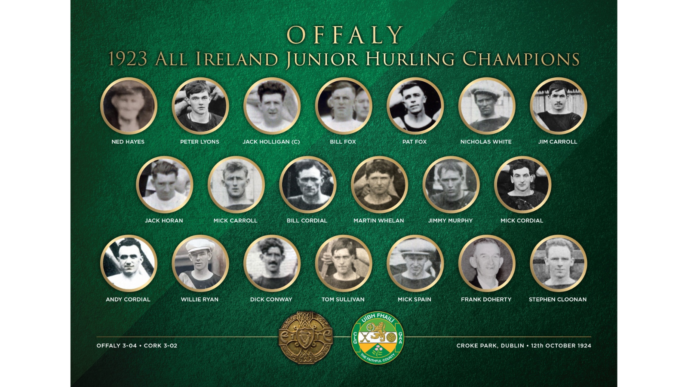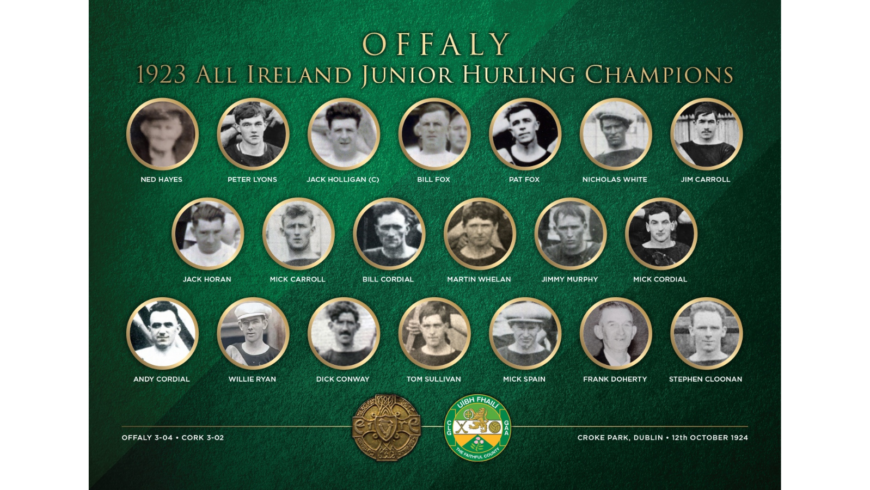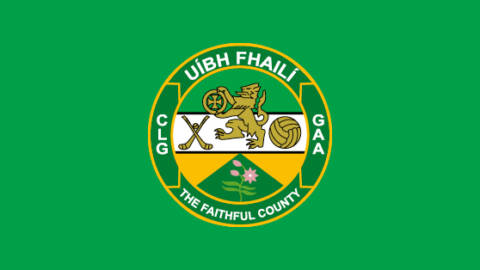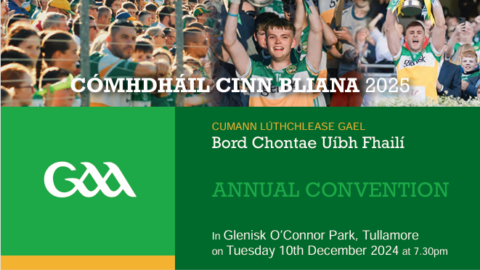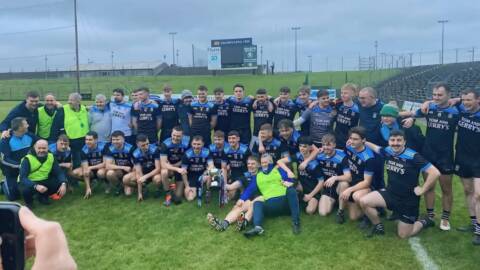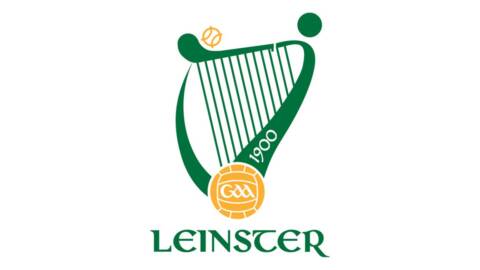The first Offaly GAA team to win an All-Ireland final, in any grade or either code, was commemorated at an event on the exact centenary date of their historic achievement last Saturday night.
Offaly defeated Cork in the 1923 All-Ireland Junior Hurling Championship final at Croke Park on 12th October 1924. Two hundred people, including many descendants and relations of the players, came together to relive their eventful campaign in Dooly’s Hotel, Birr.
Lengthy delays to GAA Championships were commonplace as the country emerged from the turmoil of the War of Independence and the Civil War.
The function was organised on behalf of Offaly by three GAA volunteers from the county, Brendan Minnock, Pat Teehan and Damian White, who is the Chairperson of the GAA’s History and Commemorations Committee.
They went to great lengths to track down relatives of the 20 strong panel who represented Offaly in the All-Ireland final versus Cork at Croke Park, which proved challenging as several of the players emigrated to New York soon after.
Among them was the team captain Jack Holligan of Kinnitty, who would later return to Croke Park as captain of the USA hurling teams that played against Ireland in the Tailteann Games of 1928 and 1932.
PROFILES OF THE ALL-IRELAND WINNING PANEL
Various newspapers reports from that era lamented that the loss of Jack and other prominent players robbed Offaly of the chance to achieve further glory in the 1920s.
Research also uncovered some interesting links with the current generation of Offaly hurlers. For example, Frank Doherty of Kilcormac was a member of the All-Ireland winning panel 100 years ago, while his great-grandson Mark Mulrooney was a member of the Faithful County’s Under 20 All-Ireland winning panel this summer.
Match reports also credited Jim Carroll of Coolderry with making a crucial clearance in the closing stages of Offaly’s 3-4 to 3-2 victory in 1924. He was the grandfather of the famous Dooley brothers, Joe, Billy and Johnny.
Brendan Minnock relayed the story of their campaign with an illustrated talk to a captivated audience last Saturday night. He also provided some titbits on their personal lives including, in some cases, involvement in the War of Independence.
Offaly’s Leinster Junior Hurling campaign began with a first round fixture versus Kildare in Athlone on 27 May 1923, resulting in a comfortable win, 9-1 to 2-2.
Two months later, Offaly defeated Dublin by a single point (1-4 to 1-3) in the Leinster semi-final, but the result was subsequently declared ‘null and void’. Dublin complained that Offaly had not submitted the required list of players before the game, so a re-fixture was ordered. It eventually took place in November when Offaly convincingly defeated their opponents by 5-2 to 2-1.
However, Dublin objected again, almost leading to Offaly’s exclusion from the championship. Their representatives claimed at a Leinster Council meeting that Offaly forward Bill Cordial played under a false name in the match. He would have been ineligible having played for the Offaly Senior Hurling team that year. One of the Dublin players alleged he had spent seven months with Cordial when they were both prisoners in the Curragh Interment Camp during the War of Independence.
At the meeting, the person identified by Dublin as Cordial said he didn’t give a false name to the referee, but had actually given a false name to the crown forces when arrested, and that he was, in fact, Jim Conlon. The objection was defeated after a vote. There is, however, both documentary and photographic evidence that Bill Cordial was indeed in the Curragh Camp in 1921.
This decision paved the way for the Leinster final to proceed on 16 December 1923. Offaly and their opponents Laois spurned an opportunity to play in Croke Park in favour of competing in Tullamore.
The weather, although gloomy in the morning, improved as the day progressed and the Offaly Independent reported that “a fairly large number of spectators” attended, many of whom arrived on specially organised trains. Offaly made the most of home advantage and won the provincial title by 4-1 to 3-2.
When the Offaly GAA Convention was held at the end of February 1924 in the Parochial Hall, Kilcormac, a local paper reported that delegates applauded when County Board Secretary Stephen Cloonan, himself a prominent hurler in the county, stated that Offaly’s goal should be to win, “not alone the Junior, but the Senior All-Ireland this year”.
To emphasise the need for a more serious approach, a motion was passed, “That players notified to attend practice matches in preparation for inter-county matches, failing to attend, be suspended for a period of six months.” According to the Secretary, some players like Nicholas White – centre back on the team that would go on to win the All-Ireland final – often cycled ten to 12 miles to attend practice matches, while others who lived convenient to venues did not turn up. The motion was passed.
On a similar note, when County Board Chairman, Lar Molloy of Drumcullen, announced that some players almost wanted a motor car to bring them to all the matches, delegates burst out laughing.
Eventually, the 1923 All-Ireland Junior Hurling Championship semi-final – Offaly v Galway – was fixed for The Sports Ground, Athlone, at the end of June 1924, a game the Leinster representatives won easily by 7-6 to 0-1.
Unfortunately, further delays to the conclusion of the 1923 GAA Championships came when orders were sent to all IRA volunteers across the country to approach GAA county teams and county boards and request that they withdraw from their respective competitions.
Soon after, the 1923 All-Ireland Senior Hurling Final between Limerick and Galway was called off, and then Cork decided they would not contest the Junior final until prisoners, including their County Board Chairman, Sean McCarthy, were released. Consequently, the GAA’s Central Council awarded the final to Offaly, who had informed the Council that they were willing to compete.
This led to uproar at an Offaly County Board meeting in Kilcormac in late July, 1924, which was covered in detail by the Midland Tribune. A resolution was proposed by the Rhode club that Offaly GAA, “repudiate the action of certain members of the junior hurling team in taking a walk-over from Cork…and we endorse the action of the Cork County Board in refusing to carry out the fixture while some of our best Gaels were interned without trial. We suggest that the County Board take action and have the above match played when circumstances permit.”
Amid heated scenes, County Board Secretary Stephen Cloonan denied that Offaly had accepted the walk-over, which was awarded at a Central Council meeting which no delegate from the county attended. Chairman, Lar Molloy said they had “to save the reputation of the county…and preserve the honour of the team.” Ultimately, a resolution was passed, that “Offaly County Board refuse to take a walk-over in the Junior Hurling All-Ireland final…and we are willing to play Cork when a fixture is feasible”.
Central Council eventually gave the go-ahead to play the final on 12 October 1924 at Croke Park.
According to various match reports, it surpassed all expectations. For example, the Freeman’s Journal stated: “Much was expected of the hurling final between Offaly and Cork. It exceeded in tenseness, cleverness, determination and skill all anticipations. Few senior finals could have excelled it in hurling merit, and none in respect of the cleanness, sharpness and quickness of camán play.”
The teams were level at half time, 2-1 apiece, with Andy Cordial and Martin Whelan scoring the Offaly goals.
In the second half, a second goal by Andy Cordial and points from his brother Bill, and Willie Ryan, helped Offaly into a five point lead with time running out. But Cork replied with another goal and it took some heroic defending for Offaly to hold out for a famous triumph by two points, 3-4 to 3-2.
No home coming was organised for the Offaly team, some of whom decided to stay in Dublin that Sunday night to enjoy the novelty of attending a silent movie near the city centre.
However, the large attendance at the commemorative event last Saturday compensated for the lack of fanfare 100 years ago by affording the team a prolonged standing ovation at the end of Mr Minnock’s presentation.
Relatives of the players were then presented with a framed photograph and booklet to mark the occasion by County Board Chairperson, Michael Duignan.
